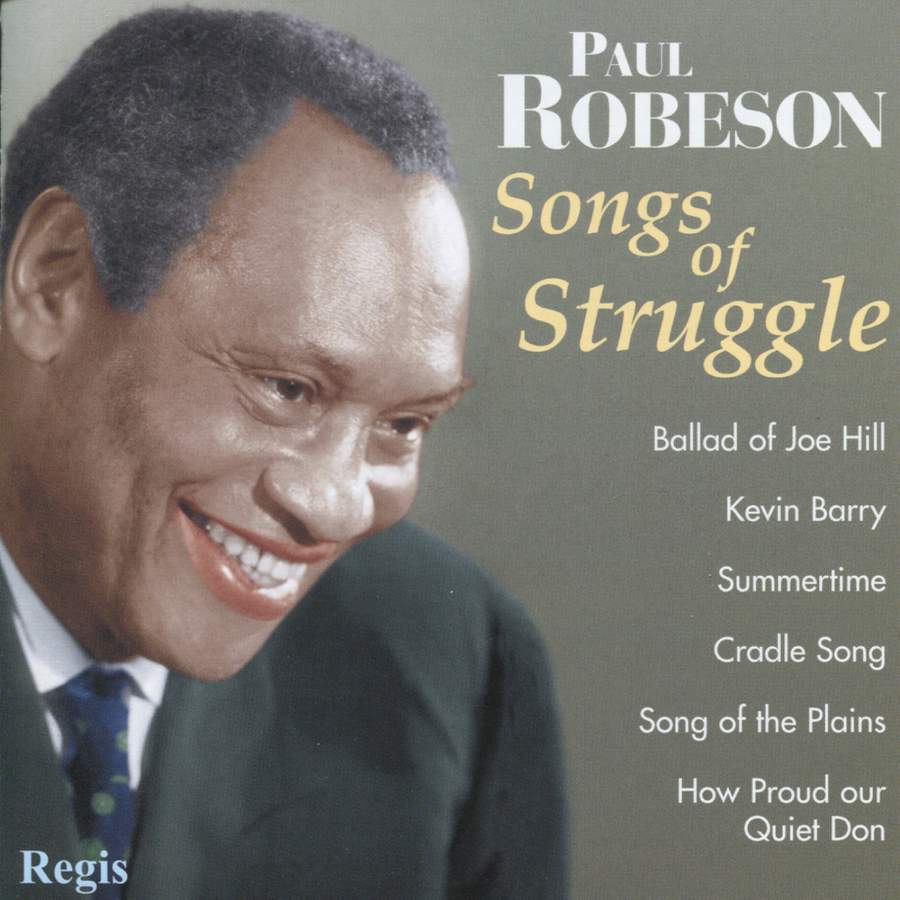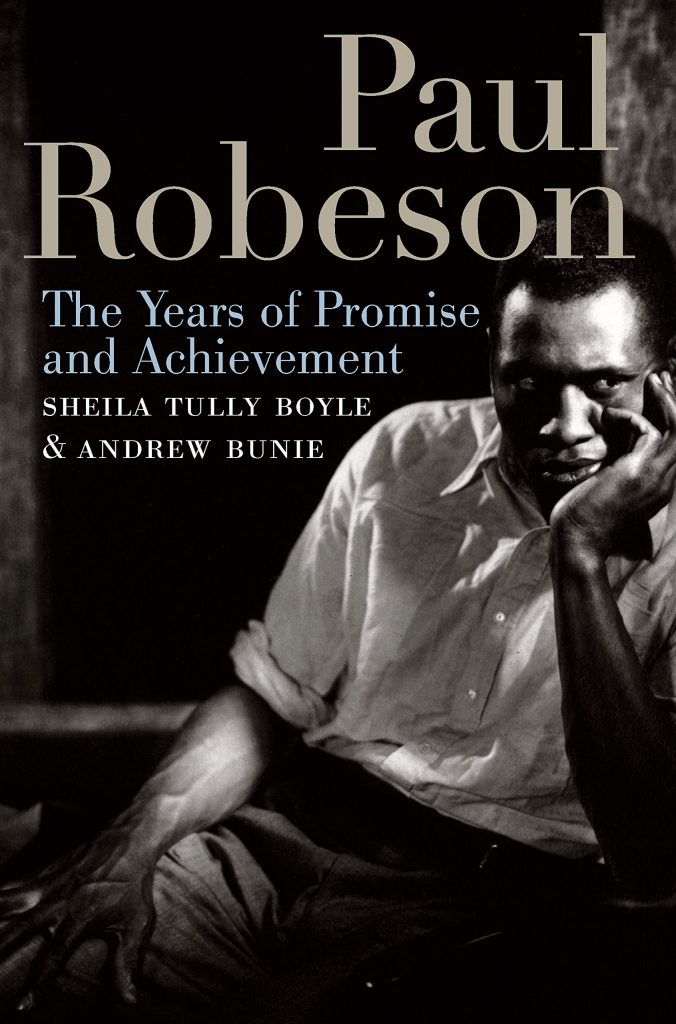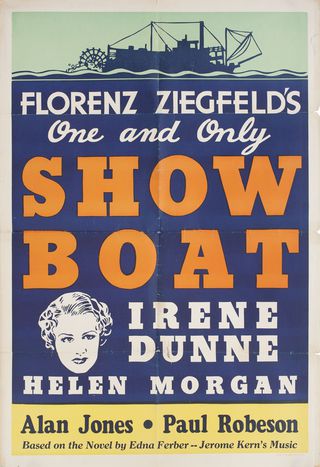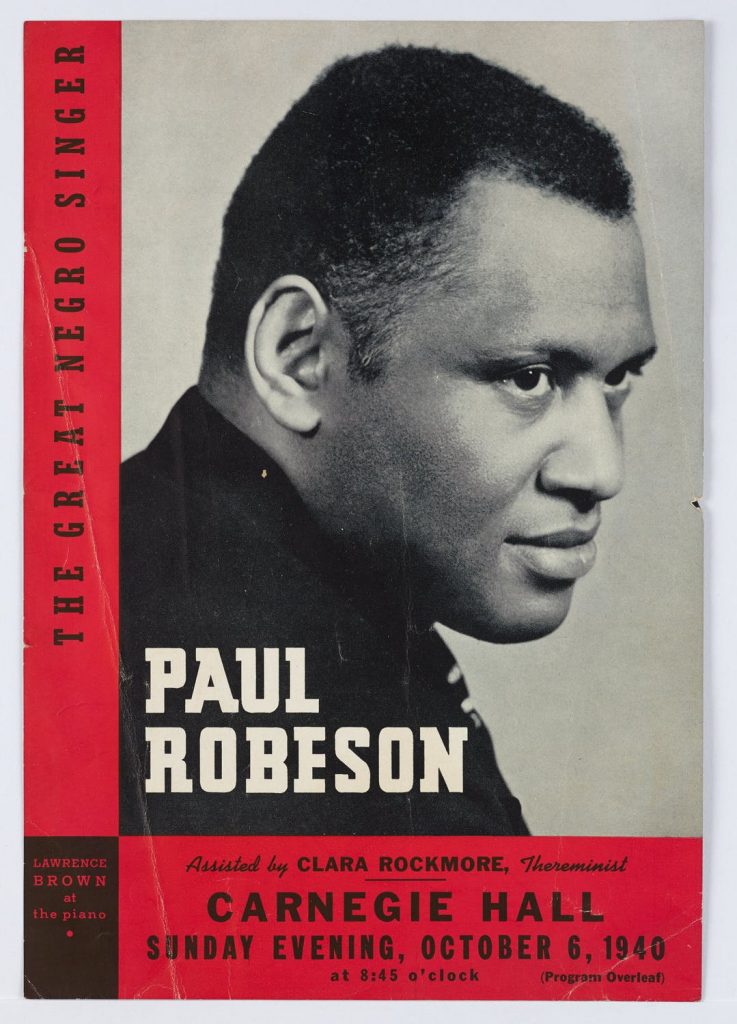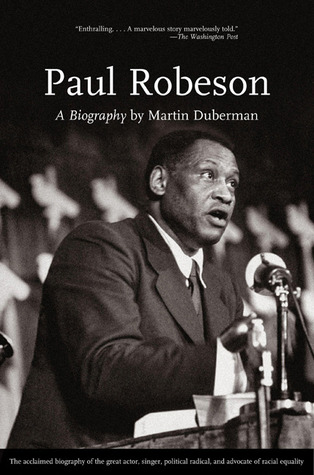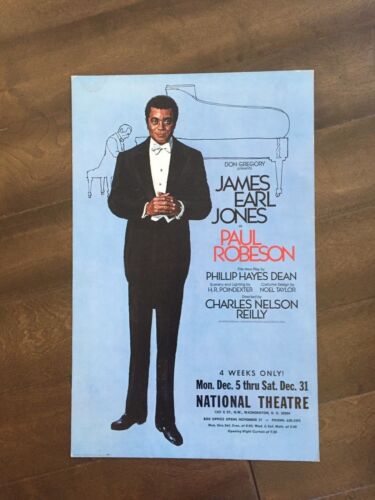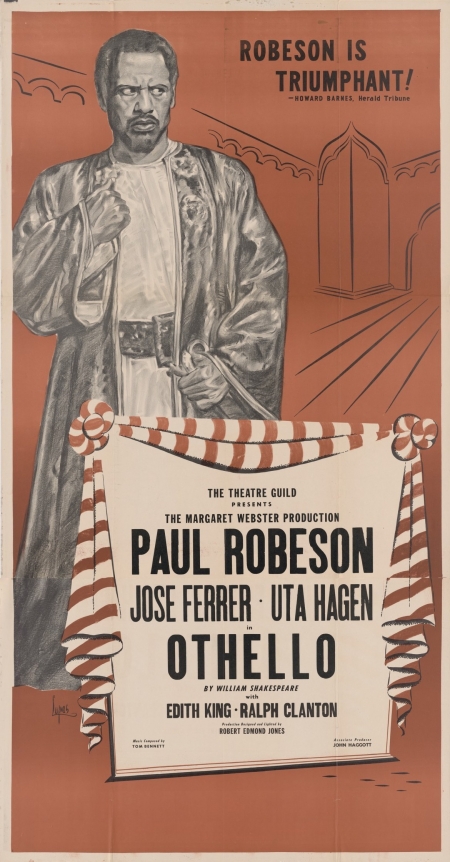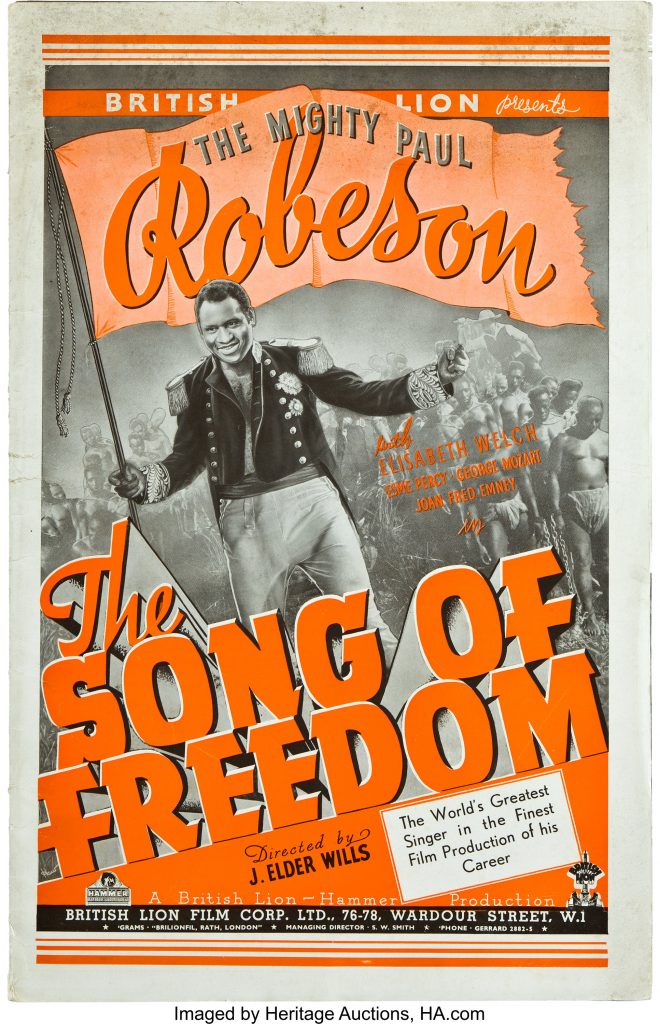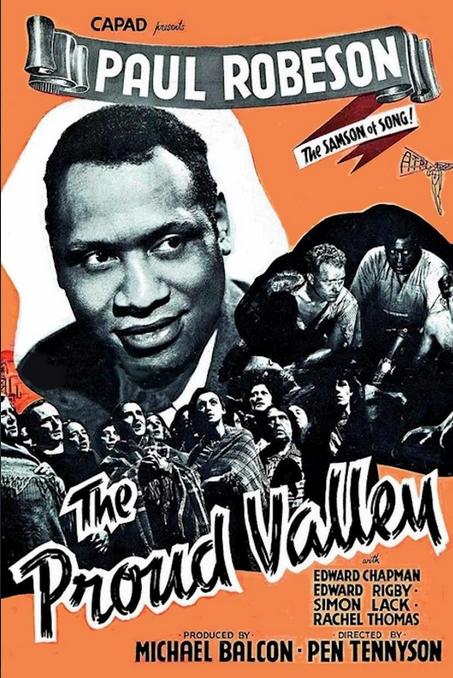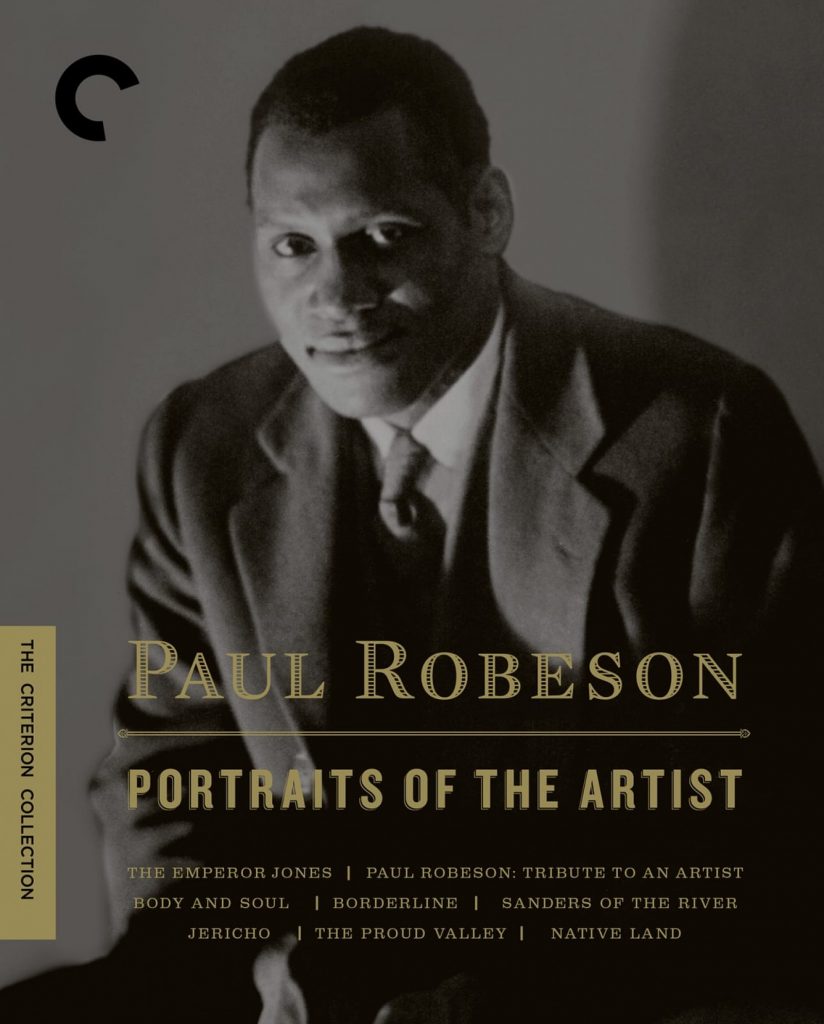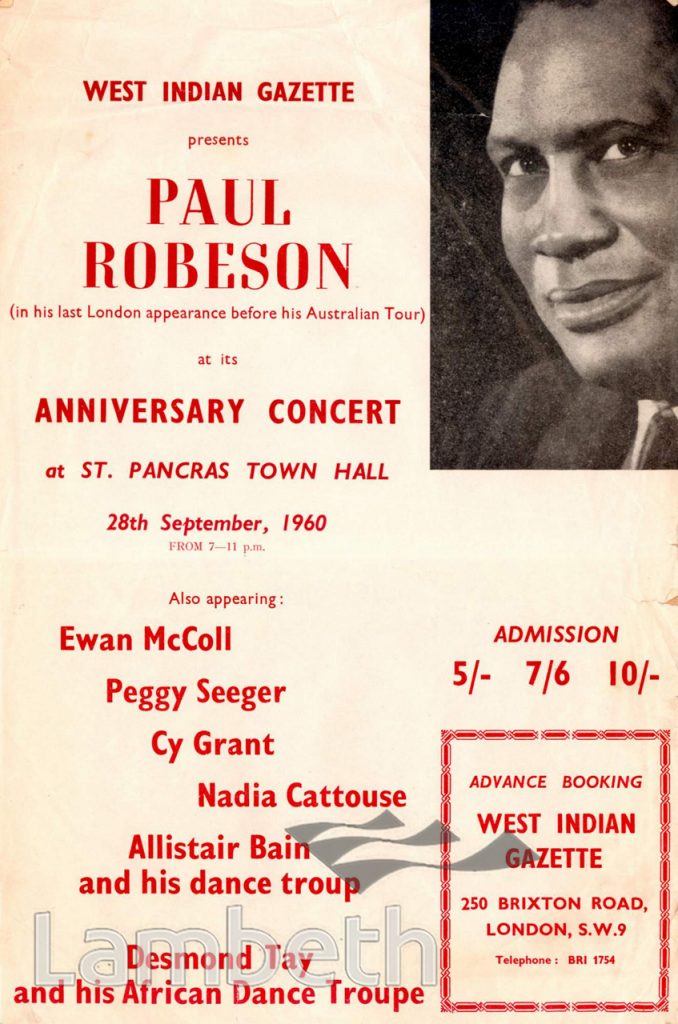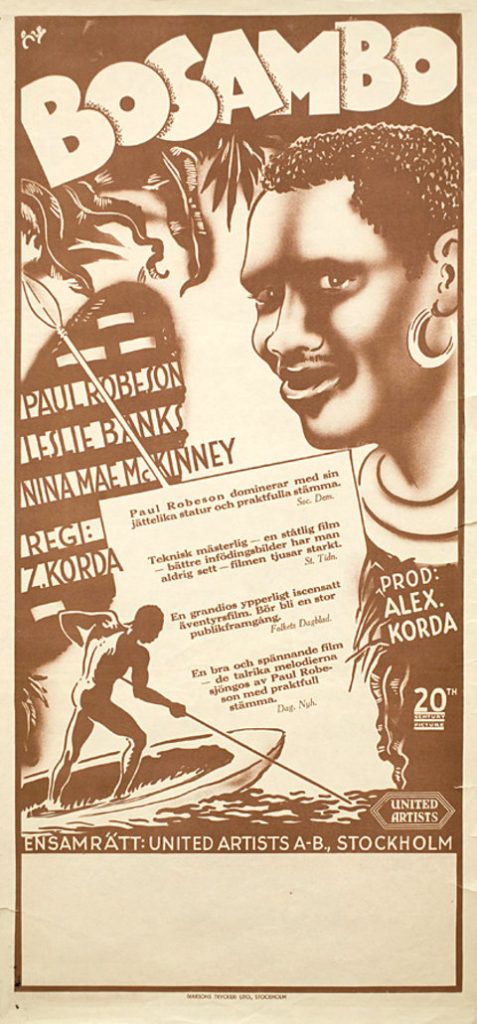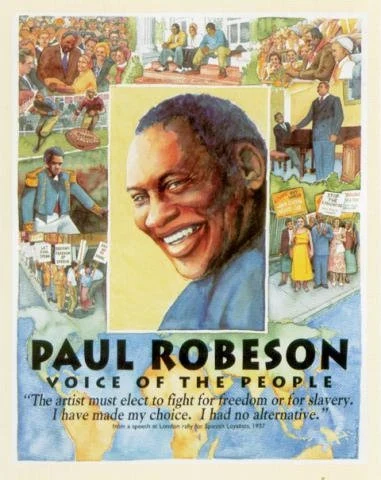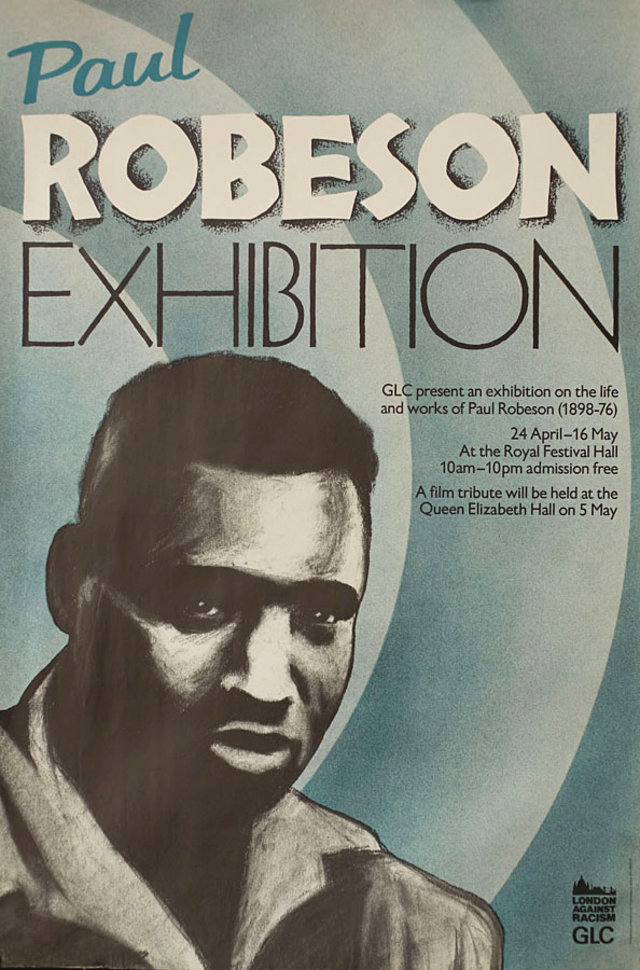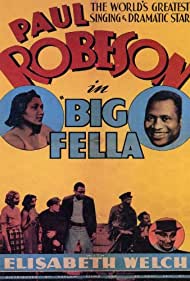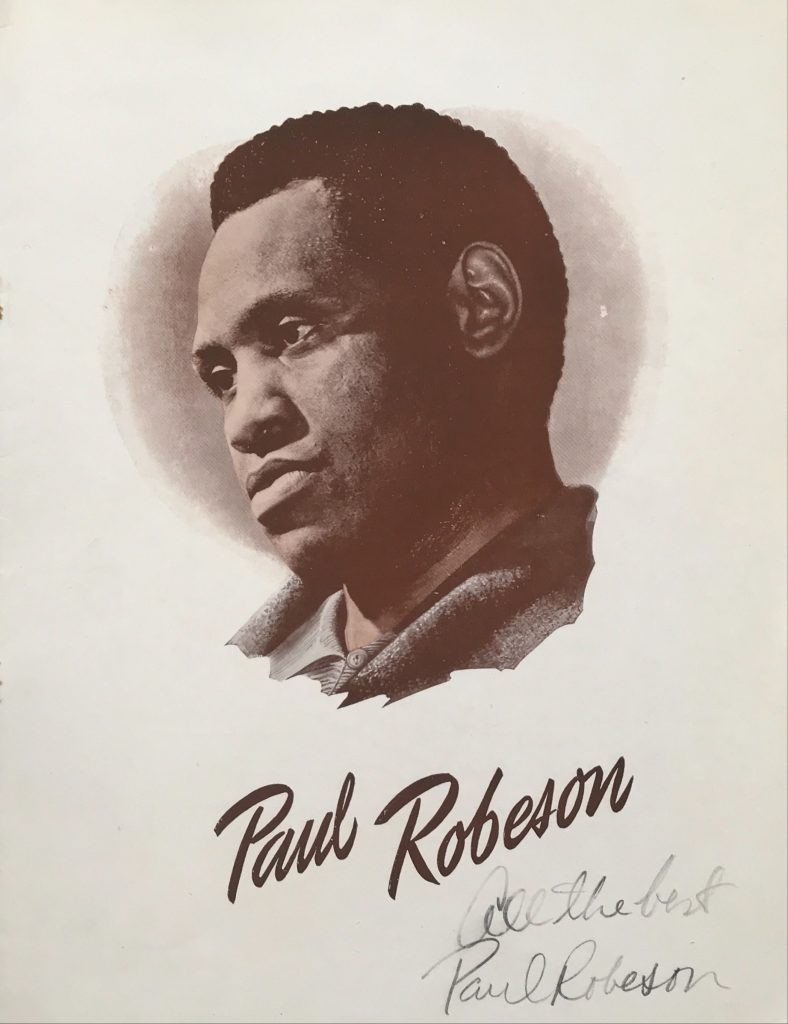
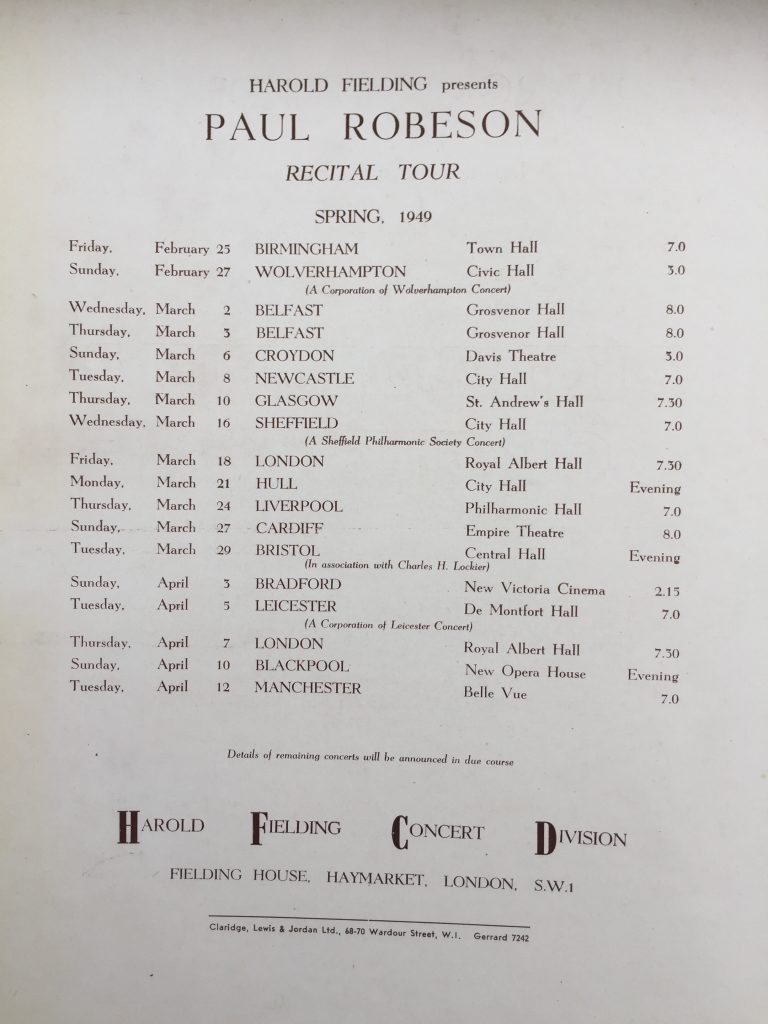
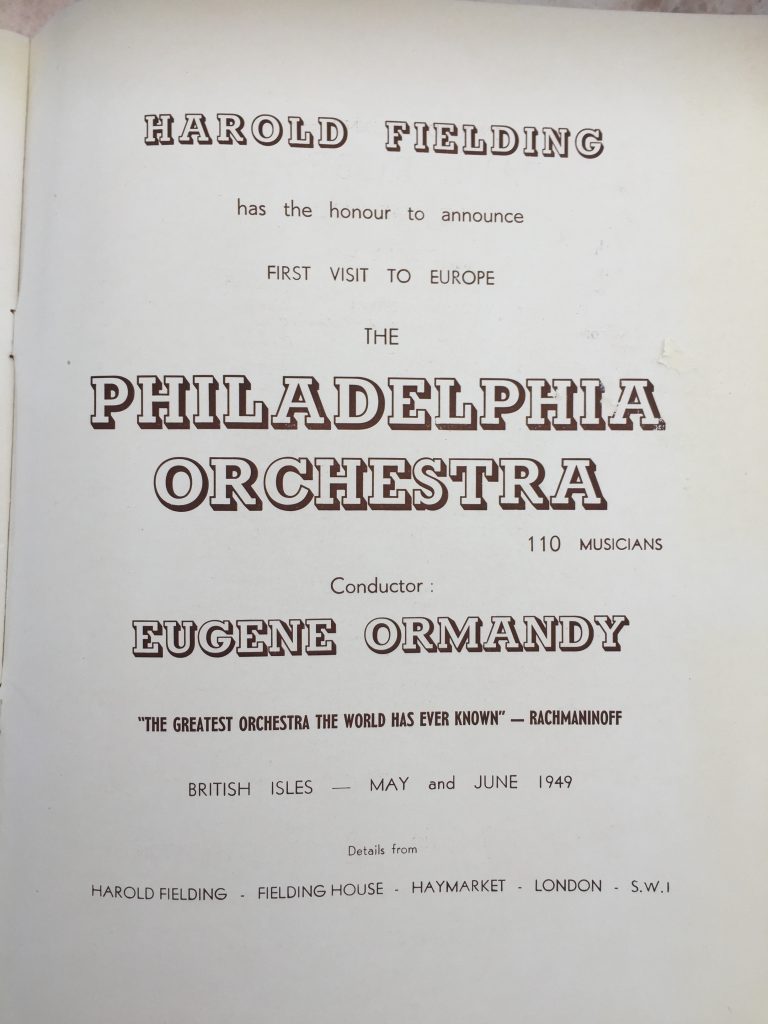
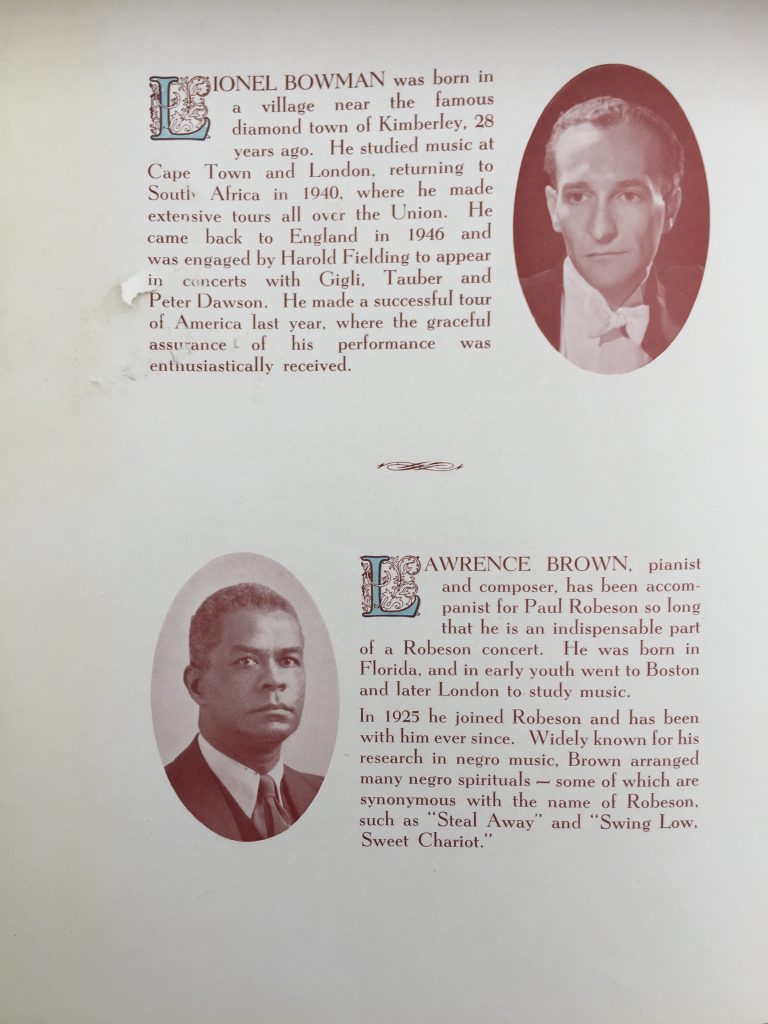
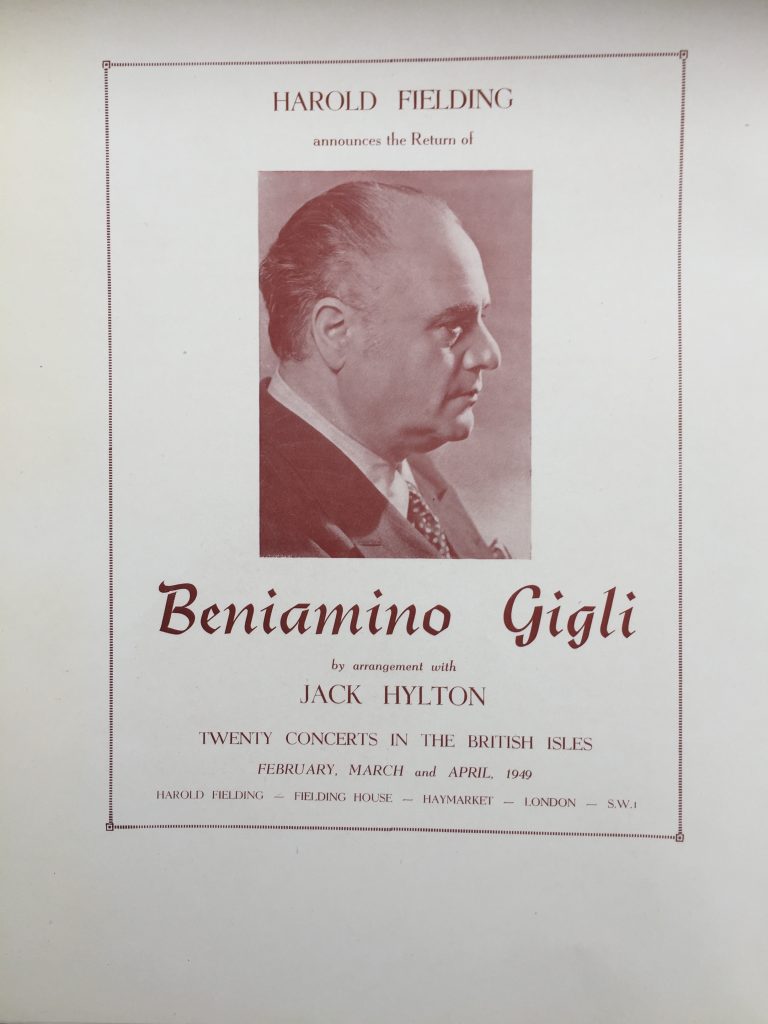
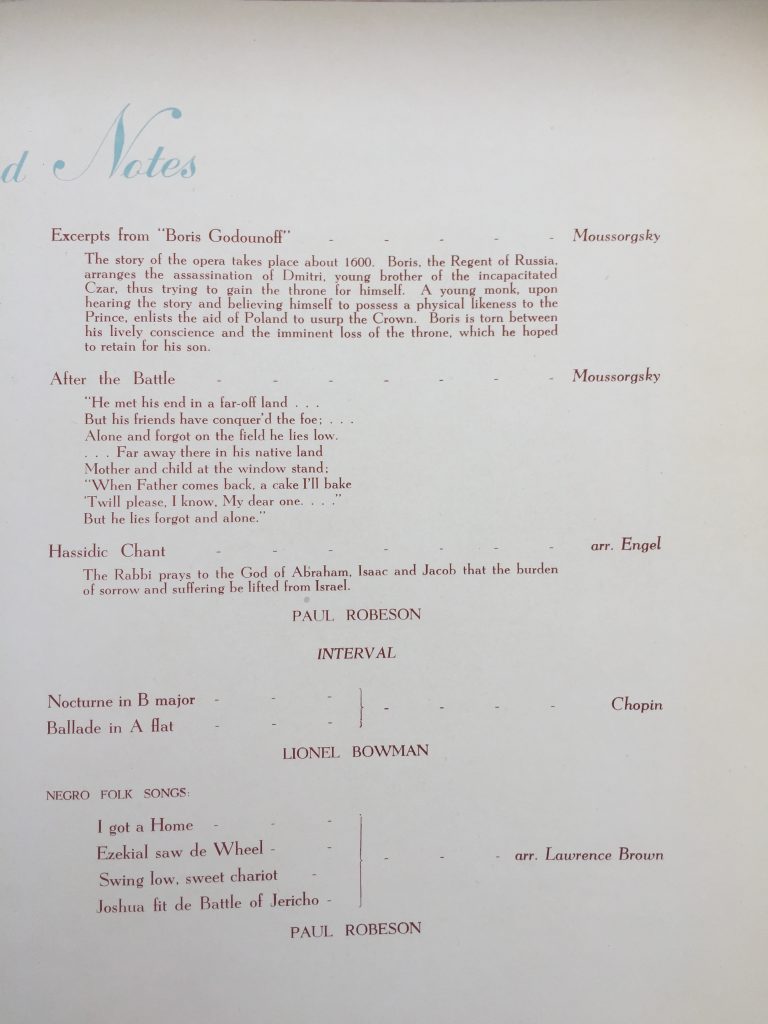
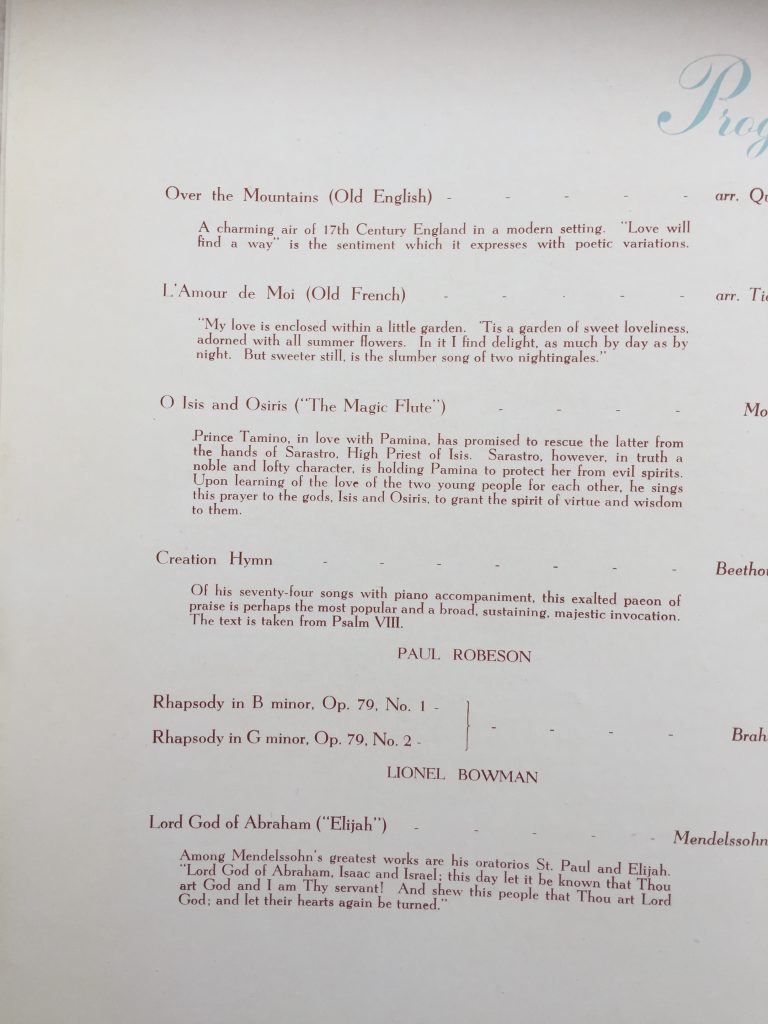
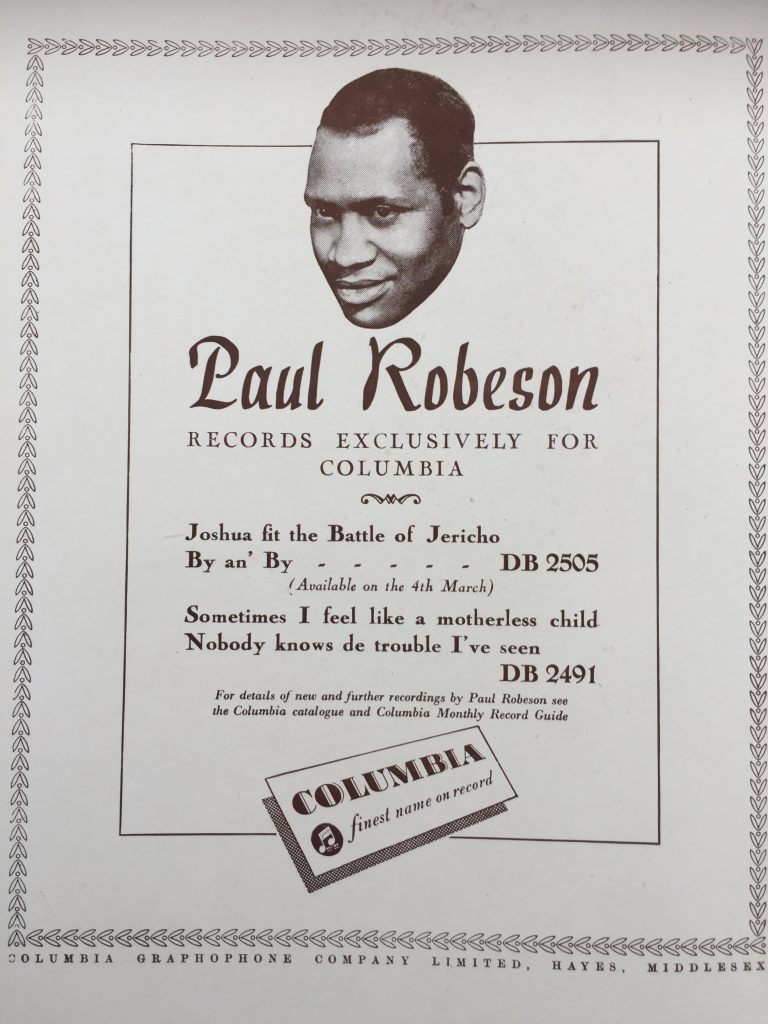
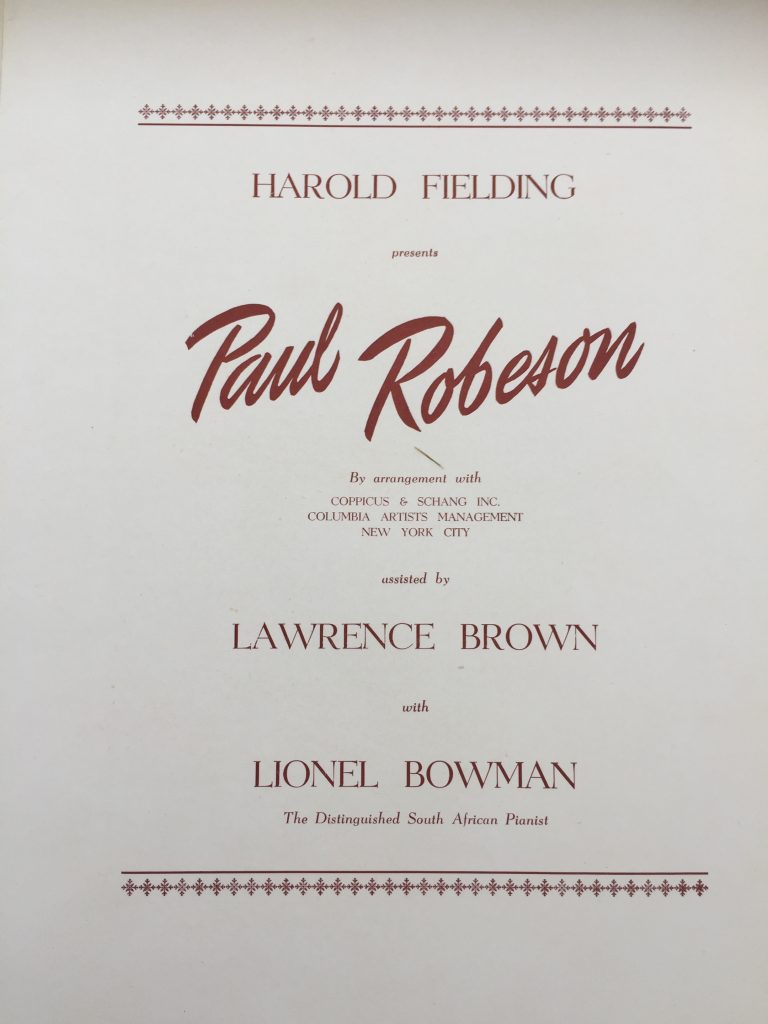
TCM Overview:
The son of a runaway slave turned minister and a schoolteacher, Paul Robeson proved to be an unique figure in American history. A tall, handsome man with a commanding stage presence and mellifluous, booming baritone, he was not only a distinguished actor and singer but also a scholar, athlete and lawyer. Born and raised in New Jersey, Robeson won a scholarship to Rutgers and was only the third black to enroll at the school. He excelled at athletics, earning letters in four sports (basketball, track, baseball and football) and was twice named to the All-American Football Team. Robeson made Phi Beta Kappa and was his class valedictorian. Moving to NYC, he entered Columbia University’s Law School, playing professional football for three seasons (1920-23) and acting and singing to help defray the expenses. In 1921, he had an early stage role in the biblically-themed “Simon the Cyrenian” and later joined the cast of the all-black musical “Shuffle Along” in 1922. Admitted to the New York State Bar, Robeson found work at a law firm but left when a Caucasian secretary refused to take dictation from him. Gravitating towards the stage, this singularly versatile talent found success alternately the leads in two Eugene O’Neill dramas, “The Emperor Jones” and the controversial “All God’s Chillun Got Wings.” As the latter depicted an interracial marriage, it was the subject of debate and condemnation, but the actor triumphed.
His stage success led to film work. Robeson debuted in a dual role of an unscrupulous preacher and his more virtuous brother in Oscar Micheaux’s silent “Body and Soul” (1924). While Jerome Kern wanted the singer-actor to originate the role of Joe in the Broadway premiere “Show Boat” (Robeson had even signed a contract), production delays and conflicting bookings led to Robeson being replaced. He did get to play the role in London and his stirring delivery of “Ol’ Man River” became the definitive version of the song for generations. Settling in Europe where he felt a person of color could find more diverse employment opportunities, Robeson appeared in the experimental feature “Borderline” (1930). He briefly returned to America to film “The Emperor Jones” (1933), considered by many critics to be his best work despite the inherent flaws of the material. Declining the opportunity to perform in “Aida” in Chicago, he returned to England to undertake the role of an African chief in the ill-advised “Sanders of the River” (1934). He fared only slightly better in a similar role in the first filming of H Rider Haggard’s adventure novel “King Solomon’s Mines” (1937). Robeson accepted the film version of “Show Boat” (1936) primarily for the money, but it at least provided a record of his signature vocals for “Ol’ Man River.” As roles for blacks in Hollywood were severely limited to caricatures and menials, he returned to England and appeared in a handful of films that, while routine, at least offered less stereotypical roles. He twice played a dockworker in films that also showcased his rich baritone. “Song of Freedom” (1936) cast him as a laborer turned opera star who discovers he is heir to an African throne while “Big Fella” (1937) teamed him with Elizabeth Welch in an offbeat tale of blackmail and kidnapping. “Jericho/Dark Sands” (1938) saw Robeson portraying a court-martialed American who escapes to Africa. Some find the film charming while others decry its now blatant racist overtones. He was again a noble figure in “The Proud Valley” (1939), playing a coal miner in Wales who sacrifices his life for his fellow workers. It was to be the last of his leading roles. Robeson returned to the USA and made only one other film appearance in the omnibus “Tales of Manhattan” (1942), teamed in a sketch with Eddie ‘Rochester’ Anderson and Ethel Waters that reduced these fine performers to ridiculous stereotypes as sharecroppers. That same year, he narrated the civil rights documentary “Native Land” which received a very limited release.
Robeson returned to the stage, starring in an acclaimed 1942 production of “Othello” that cause some controversy over his kissing his Caucasian co-star Uta Hagen. The show began in Cambridge, Massachusetts, and went on to play nearly 300 performances on Broadway in 1943 and toured extensively. As the decade wore on, though, Robeson came under attack for many of his political views. Having been warmly welcomed in the Soviet Union, he became a vocal advocate of Communism and other left-wing causes. Willing to risk his career for viewpoints that some found objectionable, he constantly called attention to bigotry and the limited opportunities for persons of color, including picketing the White House and calling for a crusade against lynching. Called to testify before the House Committee on Un-American Activities (HUAC) in 1946, Robeson proved a strong presence. Responding to a query as to why he didn’t go to live in the USSR, he told the Committee “Because my father was a slave, and my people died to build this country, and I am going to stay right here and have a part of it just like you. And no fascist-minded people will drive me from it. Is that clear?” Yet, some of his views were controversial, notably his call for black youth not to participate if there was a war with the Soviet Union. Like many other artists of the time, Robeson was blacklisted and his passport was revoked for eight years (1950-58). By the time the US Supreme Court restored his right to travel, his health had begun to fail. In 1958, he published his autobiography, “Here I Stand” but few major newspapers would review it. He twice tried to commit suicide and suffered a series of breakdowns that led him to withdraw from public life. He died of complications from a stroke in 1976. Three years later, he was the subject of the documentary “Paul Robeson: Portrait of an Artist” and over the next thirty years, his reputation as an artist and world citizen was gradually restored.
The above TCM Overview can also be accessed online here.
